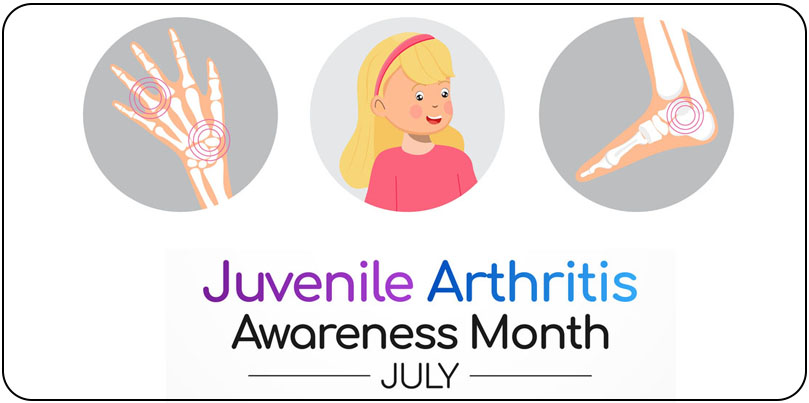When we hear the word arthritis, many of us think of adult or elderly patients with joint pain and stiffness.
Children and teenagers get a type of arthritis called Juvenile Idiopathic Arthritis (JIA). “Juvenile” means young (16 years of age or younger) and “idiopathic” means that the cause is not known. JIA was previously called Juvenile Rheumatoid Arthritis (JRA).
MYTH 1: JIA MOSTLY AFFECTS THE JOINTS
FACT 1: Although JIA mostly affects the joints and surrounding tissues, it can also affect other organs, like the eyes, skin, liver, heart, and lungs
If not picked up and treated properly, it can have severe consequences
MYTH 2: THERE IS ONLY ONE TYPE OF JUVENILE ARTHRITIS
FACT 2: There are seven different types of JIA that affect children and teenagers under 16 years of age, including:
- Oligoarthritis (two different types) – arthritis affecting 1 to 4 joints
- Polyarthritis (two different types) – arthritis affecting more than 5 joints
- Systemic arthritis – arthritis accompanied by fever and rash
- Enthesitis-related arthritis – arthritis and inflammation of tendon insertions
- Psoriatic arthritis – arthritis accompanied by psoriasis
MYTH 3: CHILDREN OUTGROW ARTHRITIS
FACT 3: While it is true that some kids can go into remission (and seem to “outgrow it”), most of pediatric cases are chronic, meaning they will be dealing with it for the rest of their lives. The good news is that there can be good disease control with the right treatment. However, there is always a possibility of a flare.
MYTH 4: KIDS WITH ARTHRITIS CAN’T PLAY SPORTS
FACT 4: Kids with JIA can participate in sports but it is important to be sure their arthritis is under good control to avoid injury. Physical therapy is very helpful to learn how to strengthen and protect the joints with exercise.
MYTH 5: CHILDREN WITH ARTHRITIS SHOULD NOT EXERCISE
FACT 5: When your child is in pain, your first instinct may be to keep them still, so they can rest and heal. With arthritis, exercise and activity can strengthen the muscles and other structures that support the joints.
PHYSICAL THERAPY INTERVENTIONS FOR JIA:
- Cryotherapy to reduce pain
- variable-resistance exercise programs or progressive high-intensity strength training
- Graded aerobic training
- Resting splints may be required at first for severely inflamed joints.
- Task-oriented activity training
Physical therapy expert can help you and your child understand what exercises are safe, as well as how to go about getting strong enough to help the condition.
IRAC Specialised Clinic & Physiotherapy Center
102 & 105, 1st floor, Building 47, Dubai Healthcare City, Dubai – UAE.
📞+97144568952 / +971568759661




